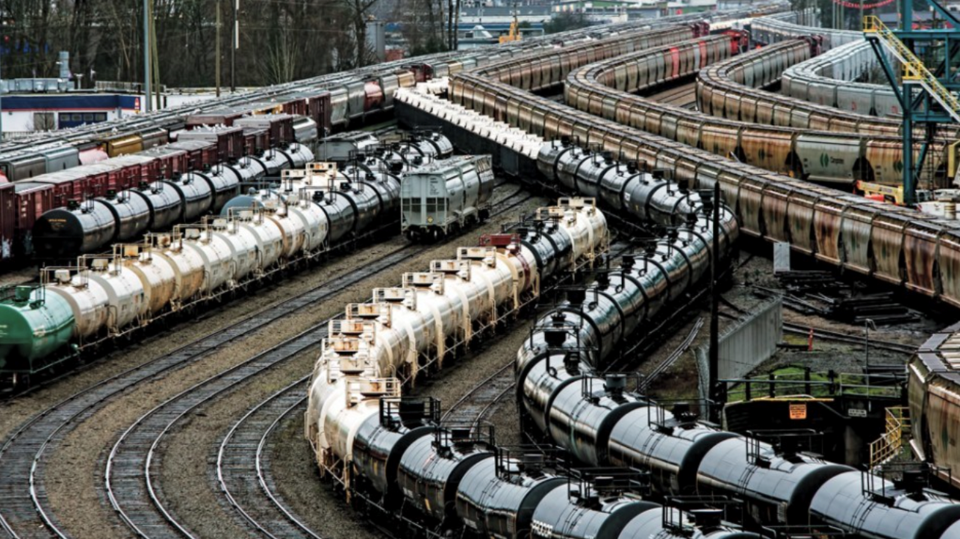Canada is a trading nation that relies on our abundance of natural resources and the ability to get our goods to market. Some Canadians may aspire for a different economic foundation for our country, but that is a dream for the future. The reality is that our natural resources are paying the bills.
The other reality is that the resources Canada exports are bulky and challenging to move. Our ability to achieve economic success as a trading nation is founded on our ability to move these goods to market promptly and predictably. As our transportation systems improve, so does our economic prosperity.
Unfortunately, the reverse is also true. The bad news for Canadians and our economy is that senior transportation executives in Canada believe our supply chains and transportation networks are in decline.
The Western Transportation Advisory Council (WESTAC) has been focused on critical issues that affect Western Canada's freight transportation network for the last 50 years. Each year, WESTAC surveys senior transportation executives across Canada to gain insights, expectations and outlooks on business and transportation in Canada. Survey respondents include CEOs, vice-presidents, senior government officials and labour leaders across the transportation and supply chain sectors. The results are published in the subsequent Compass Report.
The 2024 report highlights a substantial decline in confidence regarding Canada’s regulatory environment, business investment climate and its impact on our supply chains and transportation networks.
More than 56 per cent of industry leaders expressed dissatisfaction with the regulatory framework, deeming it restrictive, slow and riddled with both lack of action and hasty decisions that lead to unintended costs. There is a national inability to execute major projects quickly (or at all), which is stifling economic growth by discouraging capital investments. Survey respondents expressed concerns that such policies are likely seen as detrimental to Canada’s reputation on the global stage. The positive sentiments on Canada’s overall business environment are at an all-time low (20 per cent) since the survey's inception in 2017.
The survey also revealed that Western Canada’s supply chains are perceived to be losing ground in terms of competitiveness and reputation. Strikes, environmental catastrophes such as wildfires and floods, and seasonal challenges are the main contributors to this perception, underscoring the urgency for more resilient and efficient supply chains. The need for investment in infrastructure and technology is emphasized as a pathway to bolstering resilience, with a particular focus on rail infrastructure and better coordination within the rail sector.
These investments are crucial as Canada relies heavily on rail to move our ample natural resources to markets. Rail is highly efficient for moving large volumes of goods at a lower cost and with a lower carbon footprint than trucks and air cargo. While trucks provide essential flexibility and are critical for last-mile, and air cargo offers speed for time-sensitive shipments, rail remains the backbone for bulk commodities and long-haul transport due to its capacity and relative environmental sustainability.
Measures to dispel economic pessimism
The insights from the report highlight the critical need for government action that is both strategic and responsive. Addressing the concerns around the regulatory environment requires a balanced approach that considers the long-term implications of legislative decisions. Below are some measures that can be taken to dispel economic pessimism.
- Improve cost competitiveness: Policies must be developed to reduce businesses' operational costs. Tax incentives should encourage innovation and job creation. Such incentives can reduce the financial risk for businesses, making investing in R&D, workforce retention and innovation feasible.
- Streamline the regulatory environment: Simplifying regulatory processes and cutting red tape will empower businesses to respond more dynamically to market changes. It is important to have a clear and consistent regulatory framework that can be relied on for timely decisions. Digital transformation of administrative services would also significantly reduce the time and cost associated with compliance.
- Invest in transportation infrastructure: Canada is a geographically big country that requires a robust transportation network to support commerce. Strategic investments in roads, bridges, rail, ports and digital infrastructure are critical. These improvements would enhance logistical efficiency and make our country more attractive to investors and trade partners. Investment in infrastructure must be an ongoing priority and further investment in the National Trade Corridor Fund in the upcoming federal budget would signal that the government understand the link between transportation and the Canadian economy.
The current economic challenges present an opportunity for visionary leadership and decisive action. Collective effort and collaboration can turn the tide, restoring optimism to the business landscape of Western Canada.
Lindsay Kislock is president and CEO of WESTAC, a council of organizations in the transportation sector represented by senior decision-makers. The comments here are the author’s and do not reflect the opinions of WESTAC members. The data in the Compass Report was collected from an online survey conducted from Oct. 4-25, 2023. The report is available at westac.com.



